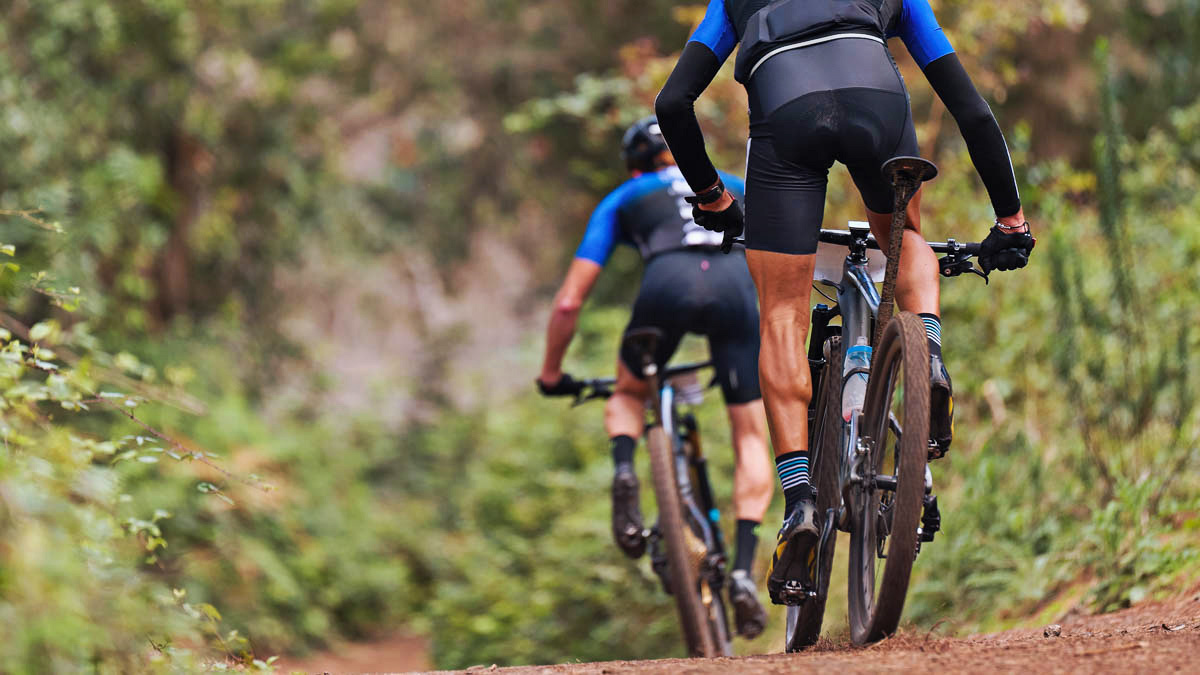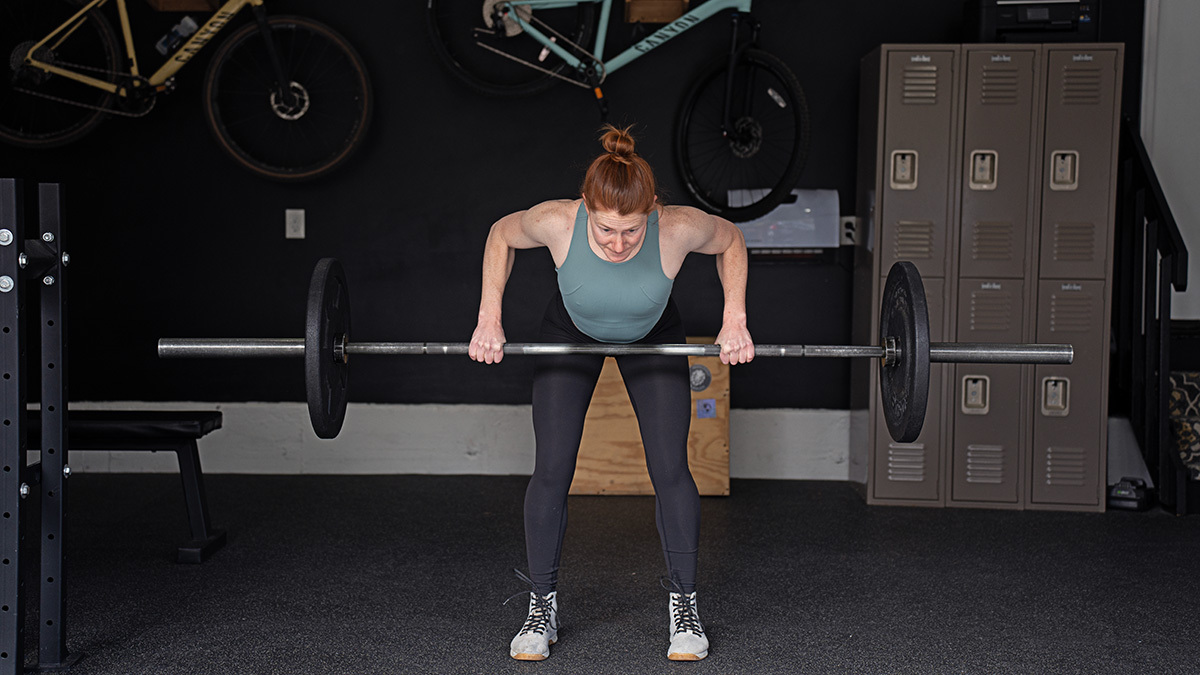Created in Collaboration With Derek Teel From Dialed Health
As a cyclist, how do you get the results from strength training you actually want? While there are a myriad of complex strength exercises that cyclists can benefit from, following a “meat and potatoes” approach can help keep workouts simple, approachable, and effective.
You can ensure you’re training for total body strength by incorporating the following seven effective movement patterns into your strength workouts.
1. Knee Dominant
Knee extension is the primary force producer of a pedal stroke. Movements that target knee extension (such as lunges or step-ups) are great for cyclists looking to produce more power.
2. Hip Dominant
Hip-dominant movements like squats or deadlifts minimize leg and low back compensations.
3. Core
Planks, Russian twists, and other core exercises give you a stable center to transfer power and stabilize your bike.
4. Horizontal Push
Push movements help you hold your weight up and handle impact through the bars. Give movements like push-ups or bench press a try.
5. Horizontal Pull
Pulling on the bars helps you push harder on the pedals during sprints. Dumbbell rows and inverted rows are great pull exercises for cyclists.
6. Vertical Push
Build well-rounded shoulders that are less prone to injury with vertical push movements like shoulder press or overhead plate carries.
7. Vertical Pull
Pull-ups and lat pull-downs are excellent vertical pull movements that improve your overhead range of motion and grip strength.
Additional Tips
- Use primarily free weights. These require your body to stabilize the weight with smaller muscle groups while still using your primary movers. This will translate the strength to your bike more easily.
- Include mobility work in every workout. Start each session with dynamic stretches (constant movement) and include them between strength sets when you start to feel “tight.” Finish each workout with some static stretching, which means holding a stretch for 30-90 seconds.
- Seek out professional advice. For more information about how many sets and reps you should be doing, and how much weight you should be lifting, seek out the opinion of a professional coach, or find a training plan that aligns with your current fitness level and goals.
- Don’t miss, just modify. Consistency wins — not only in your physical results but also in your mental gains. Ingraining the habit of showing up for your strength workouts under less-than-ideal circumstances will make for long-term success.









